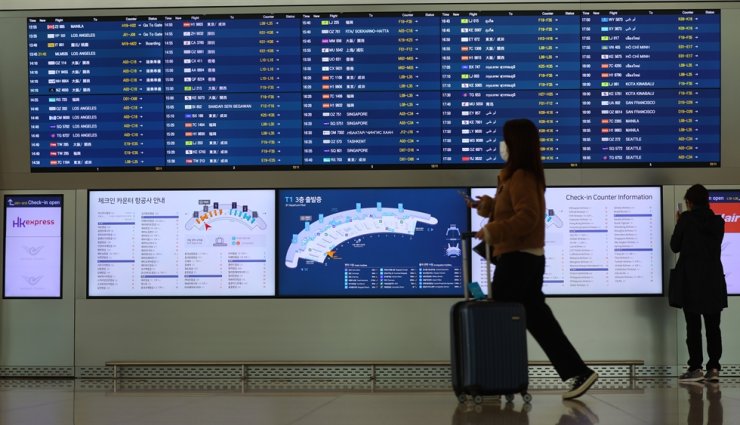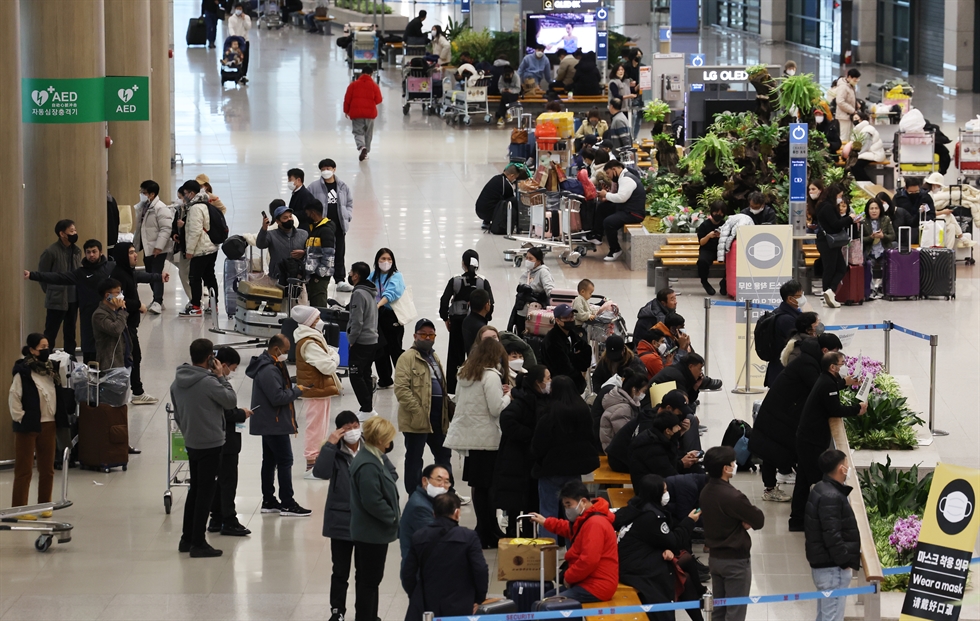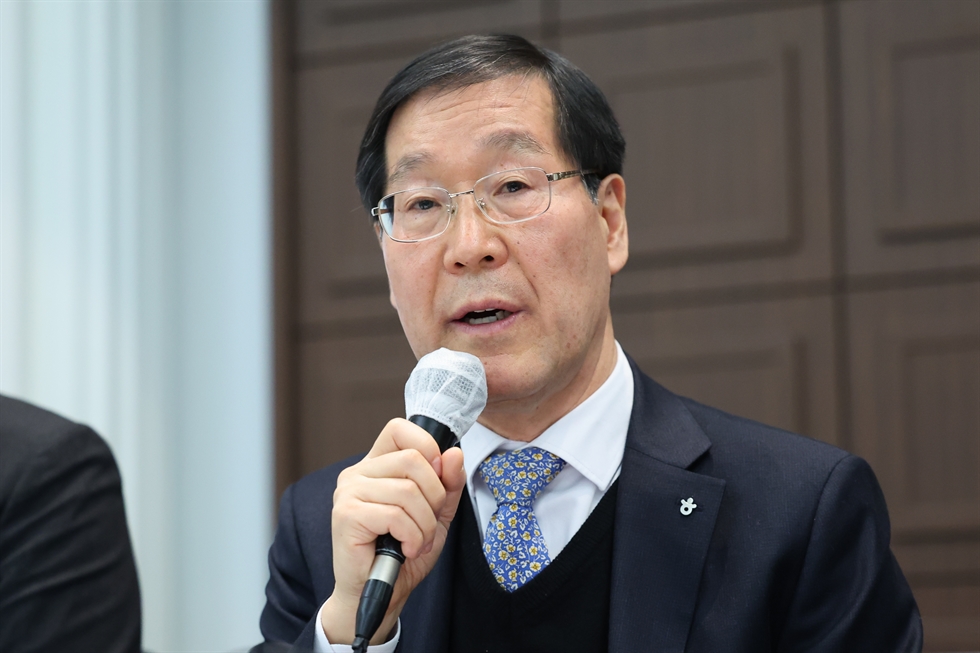K-culture, workcation visas to be introduced
4 min read |
| A traveler passes by a flight information display board at Incheon International Airport, Dec. 7. Yonhap |
By Lee Hae-rin
Korea plans to introduce two new types of visas: the K-culture visa and the workcation visa to attract foreign travelers next year and help revitalize the local tourism industry, which has been hit hard by the lingering pandemic.
The government also designated 2023 and 2024 as “Visit Korea Years.”
The Ministry of Culture, Sports and Tourism and related state agencies confirmed the sixth Tourism Promotion Master Plan produced to revive the pandemic-affected travel industry from 2023 to 2027 during a meeting held at the Korea Tourism Organization (KTO) headquarters in Seoul, Monday.
The five-year plan aims to entice 30 million inbound travelers annually and create three billion dollars’ worth in tourism revenue by 2027. The figure is larger than the industry’s pre-pandemic peak in 2019, which stood at 17.5 million.
To achieve this ambitious goal, the government said it will issue a K-culture training visa and workcation visa to attract foreign nationals who are keen to explore Korean culture.
The K-culture training visa targets young foreign nationals who are interested in Korean content and are willing to learn about the country’s entertainment industry and content creation system. The visa will be approved under the premise that the applicant will go through an education or training program in the K-content industry, such as a K-pop entertainment agency.
Although the details have not been set regarding its implementation, the visa aims to utilize the growing global popularity of Korean films, drama and music and meet the international fans’ enthusiasm to experience Korea’s popular culture. The culture ministry confirmed that the visa will be introduced during the first half of 2023.
Another type of visa to be introduced is the workcation visa.
Workcation, a combination word of work and vacation, refers to a lifestyle trend where travelers work remotely during an extended stay in another city or country. This flexible lifestyle evolved from “bleisure,” a form of travel that combines business trips with leisure trips, and became popular early in the pandemic as more people began to work remotely. According to a global study of eight countries cited by the BBC, 65 percent of the 5,500 respondents said they are likely to extend a business trip in order to include personal entertainment or vice versa in 2022.
With the workcation visa, also dubbed as the digital nomad visa, foreign travelers will be able to stay in Korea temporarily while also performing their usual tasks as an employee of a company from their home country. All the while, experiencing life in Korea. The details of the new visa’s implementation have not yet been set either.
If introduced, foreign travelers can stay in Korea for up to two years to explore their areas of interest. It will be introduced during the second half of next year.
 |
| The arrival hall at Incheon International Airport is crowded with travelers, Monday. Yonhap |
The government also plans to improve the country’s e-travel authorization system known as K-ETA so as to enhance the overall traveling experience, from entering to leaving Korea.
K-ETA allows foreigners arriving in Korea to register their travel and health information history and criminal record in advance for authorization purposes. The online travel permit system aims to speed up and facilitate the entry process of travelers but has drawn complaints and mixed reactions from travelers due to its application approval process.
The government will add an en bloc approval service for group travelers and provide Chinese and Japanese language services for the K-ETA system. Currently, it is only available in English.
With the government’s new plan, foreign nationals will have more opportunities to work in Korea’s tourism and other industries.
The government also plans to ease the hotel and tourism industry’s foreigner employment regulations. The number of openings for foreign workers with an E-7 visa at hotels will be increased from the existing level of two people to five.
Also, the regulation on international students’ working hours will be eased. Those studying in Korea for a bachelor’s degree with a D-2 visa will be allowed to work a maximum of 30 hours a week, which is higher than the existing weekly limitation of ten to 15 hours.
The government designated 2023 and 2024 as the “Visit Korea Years” and plans to hold a hundred K-culture events in collaboration with private corporations. The planned events include concerts featuring K-pop stars, the Incheon K-pop concert (INK), the One-Asia Festival and the Gangwon 2024 Winter Youth Olympic Games.
 |
| Korea Tourism Organization (KTO) head Kim Jang-sil speaks during a press conference at the Korea Press Center in downtown Seoul, Wednesday. Yonhap |
KTO plans to liven up the traveling experience with more K-content and storytelling.
During a press conference, Wednesday, KTO head Kim Jang-sil underscored the growing traveling needs concerning Korea, citing a recent Airbnb survey where Seoul ranked 4th among the most searched travel destinations. As more inbound travelers are expected to visit the country, the KTO will carry out an extensive campaign to promote tourism with K-culture content, Kim said.
“Hallyu is a global phenomenon and a lot of travelers come to Korea to see and experience the home country of the K-culture they love. We will provide new traveling experiences for foreign travelers and expand their interests to Korea’s classic arts, traditional culture and lifestyle,” Kim said.



